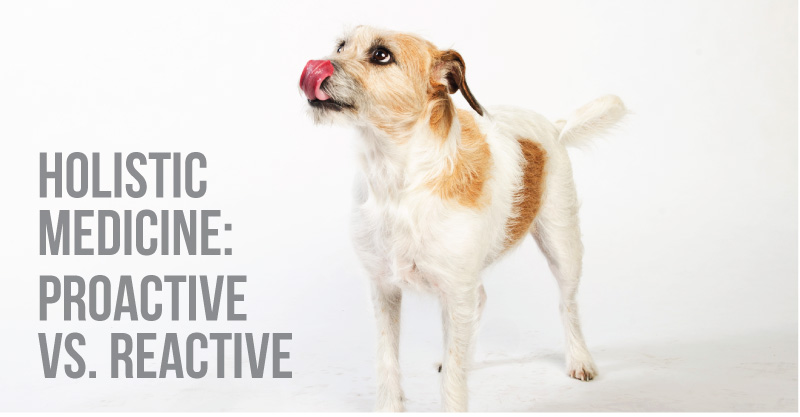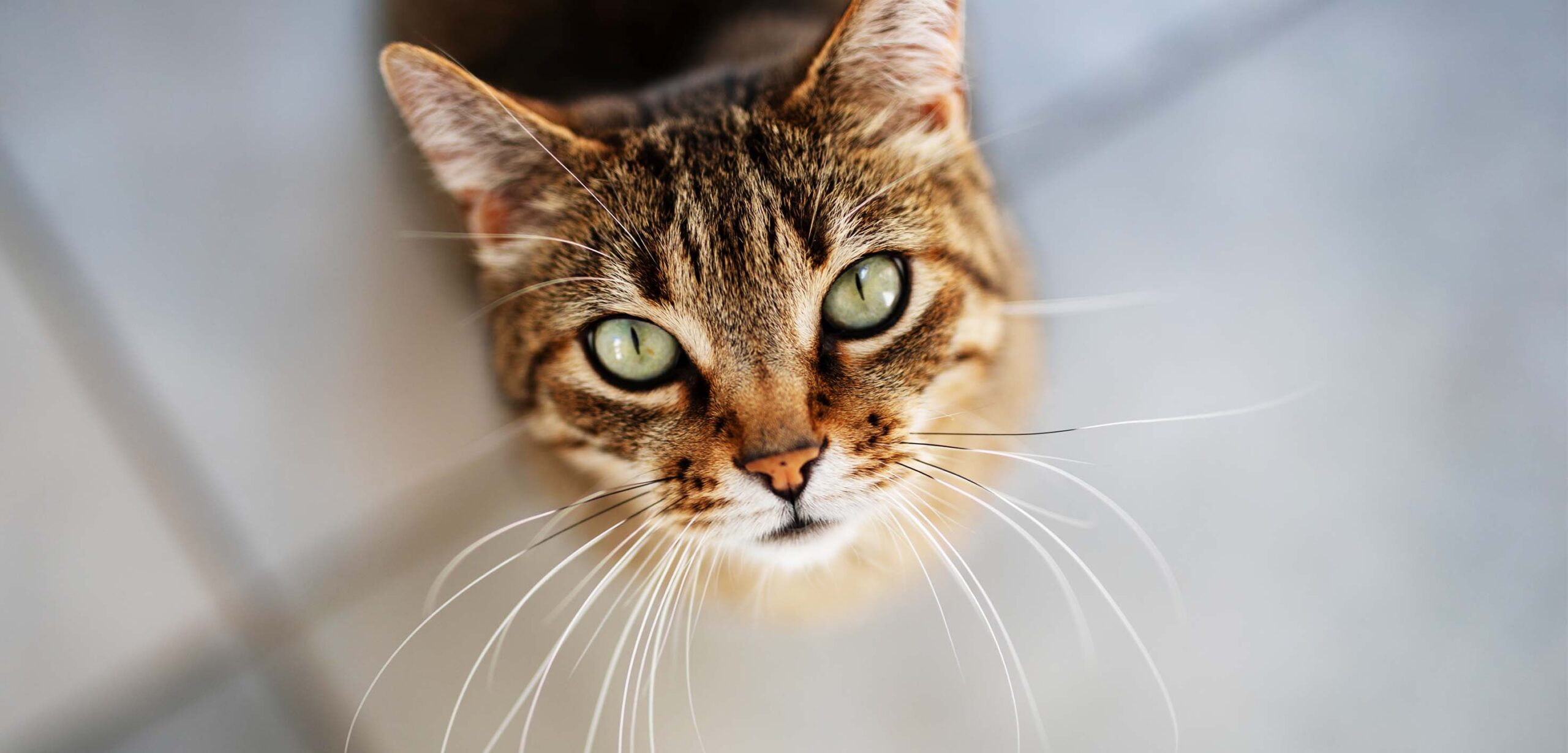Happy National Holistic Pet Day!
The difference between holistic medicine and traditional medicine is really the difference between proactive care and reactive care (and its really up to the preference of the patient to decide which route to take).
Traditional Care (Reactive)
Traditional medicine is focused on dealing with issues as they arise. It takes a problem that has surfaced—allergies, digestive issues, etc—and prescribes some kind of tool to combat or eliminate that specific problem. For example, an owner noticed that after his dog’s 5th birthday, she became very wobbly and inactive. He takes the dog into the vet and finds that she has developed arthritis, as her breed is genetically predisposed to the disease. The vet then prescribes a medication to address the discomfort, and the dog remains on the pharmaceutical for the remainder of her life.
Holistic Care (Proactive)
With the same scenario in holistic medicine, the owner’s vet would advise him to provide a certain lifestyle and diet for the dog (knowing her genetic predisposition to developing arthritis) from the moment he brought her in as a puppy. The owner would find a healthy food and a solid glucosamine supplement to start his puppy out on it as early as he could. Throughout her life, the dog enjoys healthy, strong joints, not developing arthritis until her 12th year. The dog remains on her joint supplement and healthy diet, perhaps adding in a second herbal supplement for managing the extra discomfort on bad days, for the remaining years of her life.
In both situations, the dog is receiving veterinary care for her health condition. In the first scenario, the dog receives a pharmaceutical to manage her arthritis after she develops the condition on her fifth birthday. In the second, the dog grows up with a healthy diet and a good joint supplement from the very beginning, preventing the arthritis until her twelfth birthday. Both dogs develop arthritis, but they deal with it differently—reactively and proactively.
Traditional and holistic medicine are not two separate universes, though. As our veterinarian puts it, they’re “both just tools in the tool box to health”. There are some conditions that may require one or multiple treatment types. Sometimes proactive care still requires reactive care, too (ie – a sudden broken bone). And sometimes reactive care encourages people to be proactive about preventing another occurrence (ie – minor heart attacks, high blood pressure, etc). Both practices are important and both are effective.




